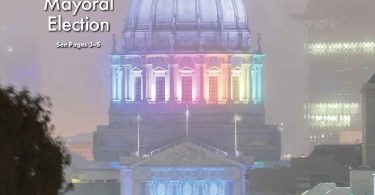In a move that has sparked both applause and outcry, Iowa’s Senate recently passed a bill dubbed the ‘Religious Freedom Restoration Act,’ sending ripples through the state’s socio-political landscape. This legislation, now awaiting further action, aims to fortify the ramparts around individual religious practices, setting a formidable legal standard against governmental encroachments. However, beneath the surface of protecting religious liberties, critics discern a potential for discrimination, particularly against LGBTQ communities, women, and minorities.
A Balancing Act: Religious Freedom vs. Civil Rights
The heart of the debate lies in the balance—or perceived imbalance—between safeguarding religious freedoms and protecting civil rights. Proponents, citing the necessity of a legal shield for people of faith, argue that the bill is a bulwark against governmental overreach into personal religious practices. They spotlight examples from other states where individuals faced legal repercussions for acting in accordance with their faith, underscoring the bill’s intent to provide a ‘common sense protection’ for Iowans’ sincerely held beliefs.
Conversely, opposition voices, predominantly from the Democratic aisle, fear the bill’s broad language opens the door to legalized discrimination. They point to scenarios where the act could be invoked to justify denying services, housing, or employment based on religious beliefs — effectively marginalizing already vulnerable groups. The concern is not just hypothetical; critics draw parallels with similar legislation in other states that have led to contentious legal battles over the rights of same-sex couples, women seeking healthcare, and other minorities.
Voices from the Ground
Amidst the legislative tussle, the voices of Iowans echo the national debate on religious freedom versus discrimination. Community leaders, legal experts, and everyday citizens are weighing in, highlighting the nuanced realities behind the headlines. Some recount personal stories of faith-based decisions challenged by governmental regulations, while others share fears of eroding protections against discrimination. This mosaic of perspectives underscores the complex interplay between individual rights and collective societal values.
Notably, the discussion extends beyond the bill itself, touching upon broader themes of tolerance, inclusivity, and the evolving understanding of religious liberty in a diverse society. As Iowa navigates these turbulent waters, the outcome of this legislative effort will likely resonate far beyond the state’s borders, contributing to the ongoing national conversation about the place of religion in public life and the rights of minority communities.
Looking Ahead: The Path Forward
As the ‘Religious Freedom Restoration Act’ inches closer to becoming law, all eyes are on Iowa’s next moves. The bill’s supporters are gearing up for a likely legal defense, preparing to argue its merits in the face of anticipated challenges. Meanwhile, opponents are not standing idly by, mobilizing support for countermeasures and exploring legal avenues to protect against potential discrimination.
In the end, the act’s fate may hinge on the broader societal question it raises: How do we balance the fundamental right to religious freedom with the imperative to protect all citizens from discrimination? Iowa’s journey through this legislative thicket may offer insights, lessons, and perhaps cautionary tales for other states wrestling with similar dilemmas.







